All-Ukrainian Human Rights Legion Forum held in Kyiv
On July 7, the All-Ukrainian Human Rights Legion Forum was held in Kyiv, where the Ombudsman, human rights defenders, public and cultural figures talked about challenges in the field of human rights during the war, interaction during the year of joint work, results, and future cooperation.
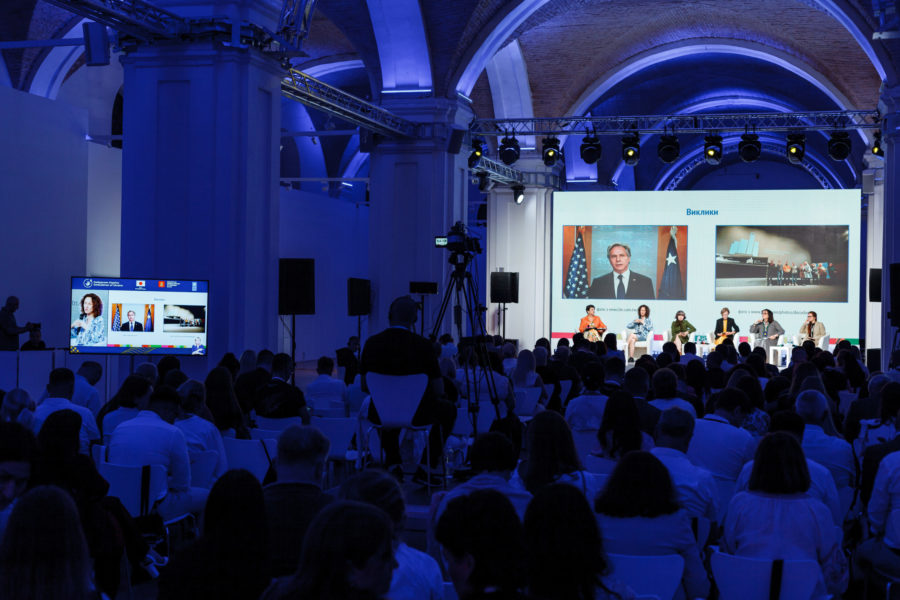
Opening the forum, Dmytro Lubinets, the Ukrainian Parliament Commissioner for Human Rights, spoke about his year in office. In particular, he mentioned the introduction of nine main areas of work, the creation of a hub of civil society initiatives, the expansion of the regional network, the opening of new consultation centers, the rebranding of the Office of the Ombudsman, the presentation of the Annual Report in the Verkhovna Rada of Ukraine, and the preparation of two special reports – on the observance of the rights of victims of Russian aggression and on violations of children’s rights in the occupied territories.
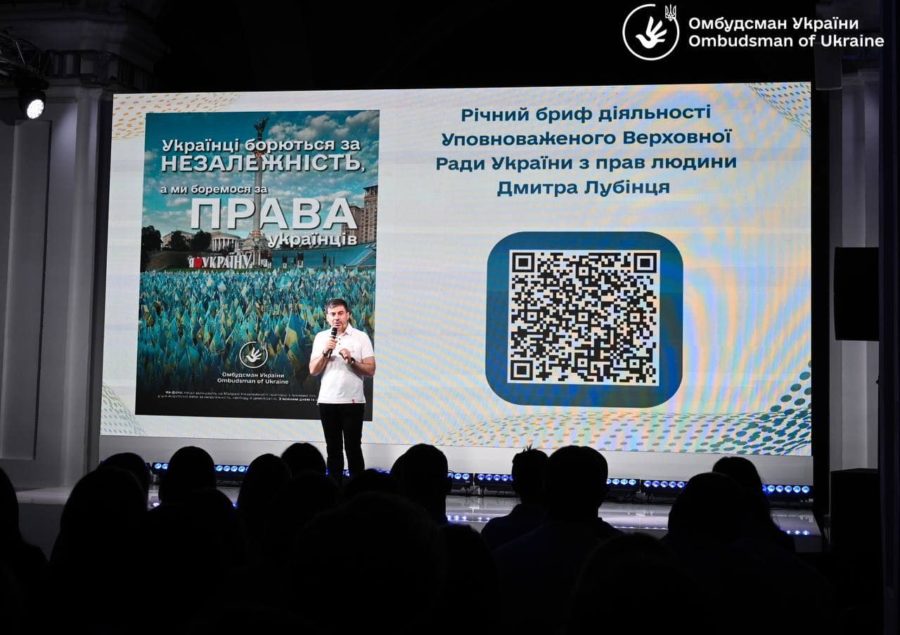
He expressed hope that such a forum will become an annual event and will gather not only human rights defenders from Ukraine but also from all over the world next year.
As part of the forum, the Action Plan for the Development Strategy of the Office of the Ombudsman was presented and discussed. Discussions “From concern to action – challenges and further steps” and “Human rights through the prism of art and culture” highlighted important topics: crimes of the Russian Federation in Ukraine, development of effective mechanisms for the protection of human rights, in particular, of military personnel and those released from captivity, coverage of Russia’s crimes in the international arena, and other issues.
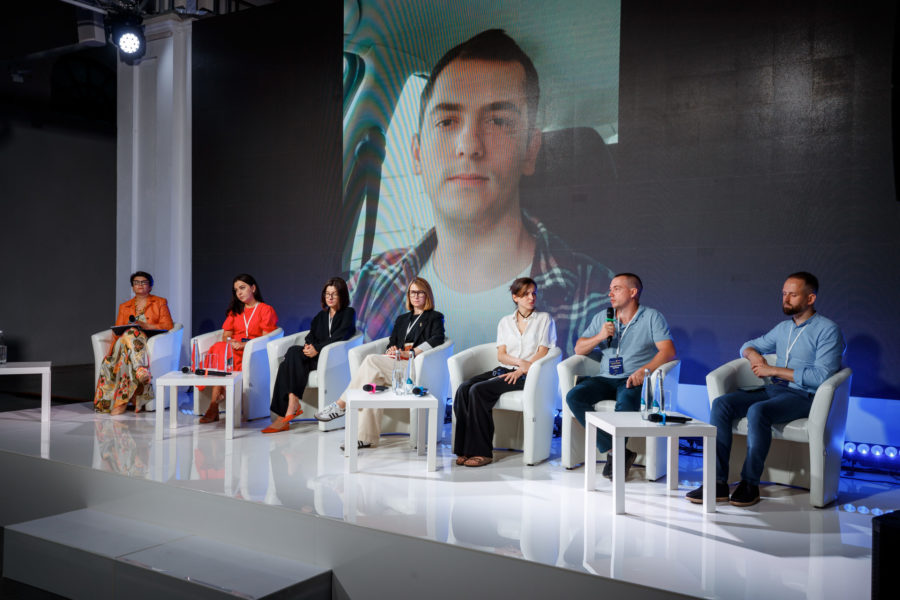
Speaking at the forum, Head of Human Rights Centre ZMINA Tetiana Pechonchyk emphasized the importance of building an effective system of support for victims of war crimes committed during Russian armed aggression.
As part of Ukraine 5AM Coalition, ZMINA continues to work with the consequences of Russian aggression against Ukraine, document war crimes, and carry out field missions to de-occupied areas. In particular, according to Pechonchyk, a team of documentators has just returned from another such trip to the villages of Vysokopillia, Trudoliubivka, and Novovorontsovka in Kherson region.
“The efforts of human rights defenders and the state are not enough in dealing with committed crimes because there are thousands and tens of thousands of these crimes,” Pechonchyk says.
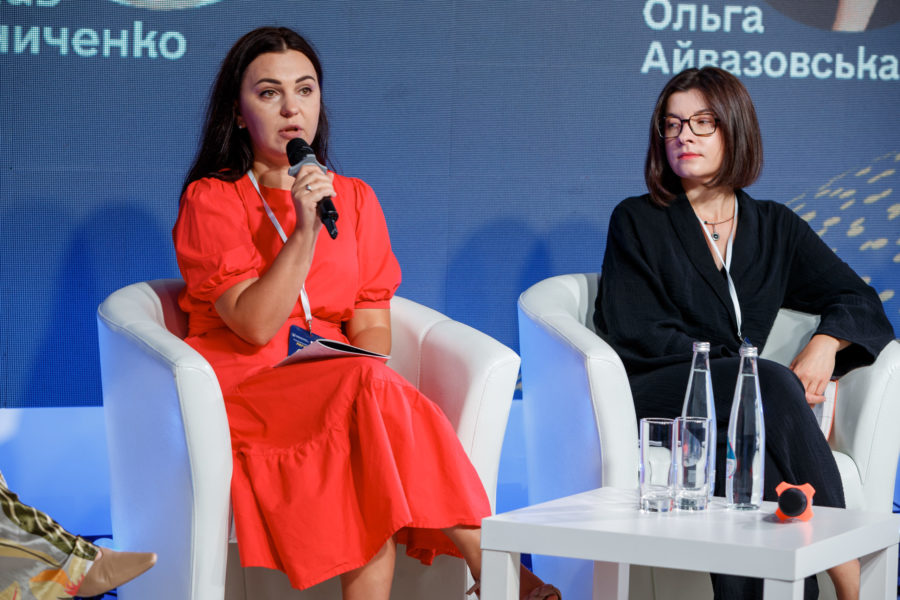 Tetiana Pechonchyk (on the left)
Tetiana Pechonchyk (on the left)She also noted that torture and captivity survivors needed psychological, medical, and legal help. Comprehensive support programs are needed, of which there are very few, and information about existing initiatives often does not reach people on the ground. In addition, according to the human rights activist, help is needed with reconstruction and building materials because people return to villages that were almost destroyed during the hostilities.
Another problem is that some of the victims do not report their experiences to law enforcement agencies because they despair of the possibilities of justice, do not trust the authorities, or are afraid that the Russians will return again. And many of those who gave their testimony do not know what happens afterwards: whether criminal proceedings are opened and whether an investigation is underway.
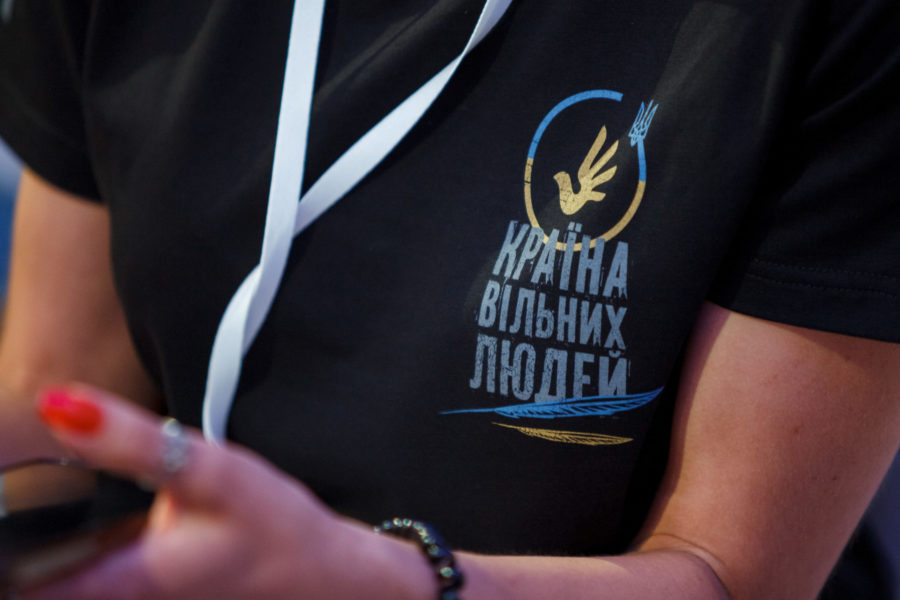
“For example, if we talk about victims of torture, most of them report that they were interviewed by the Security Service of Ukraine, but that’s the end of it — they don’t have excerpts from the Unified Register Of Pre-Trial Investigations, and there’s no information about the opening of proceedings either. One man with seven gunshot wounds received during captivity has been trying to get an excerpt for several months, he is being redirected to different offices,” the human rights activist added.
She expressed hope that the situation would change with the launch of the Coordination Center for Victims and Witnesses at the Prosecutor General’s Office of Ukraine.
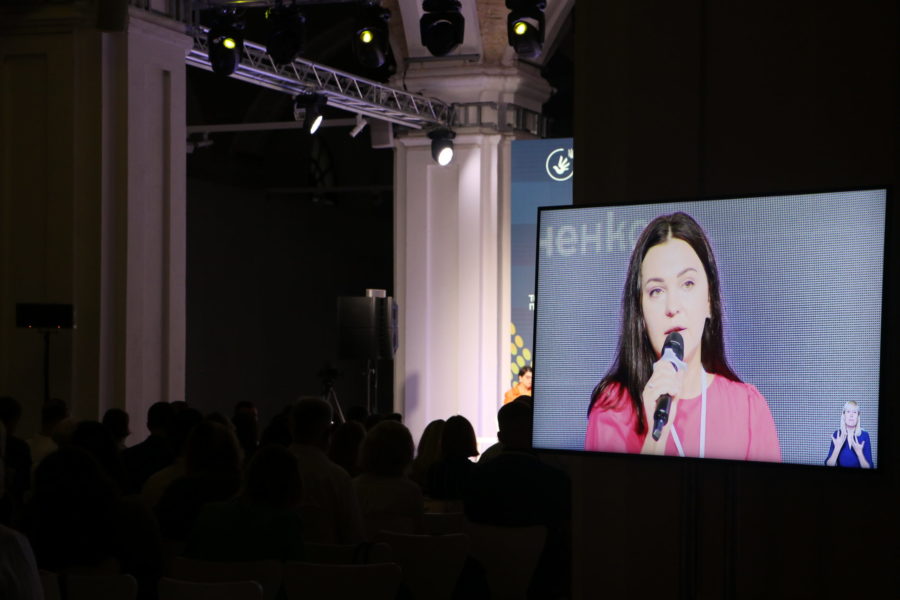
“Many victims remain invisible to the state, to the criminal justice system. They are left alone with their traumatic experiences. That is why it is necessary to work proactively so that people are not afraid to talk about their experiences,” Pechonchyk noted.
In addition, in her opinion, the state should clearly define who is a war victim, give them a voice, and make visible thousands of victims, develop an effective system of support and compensation, work to launch reparation mechanisms.
Advocacy director of NGO Fight For Right Irena Fedorovych; human rights activist, co-founder of NGO “Principle” Liubov Halan, brother of civilian POW Volodymyr Buzinov; head of information department of the Media Initiative for Human Rights Stanislav Miroshnychenko; journalist, producer of Radio Culture, member of PEN Ukraine Iryna Slavinska; and head of the board of the civil network OPORA Olha Aivazovska also took part in the discussion “All-Ukrainian Human Rights Legion Forum”. The forum was moderated by writer and human rights defender Larysa Denysenko.
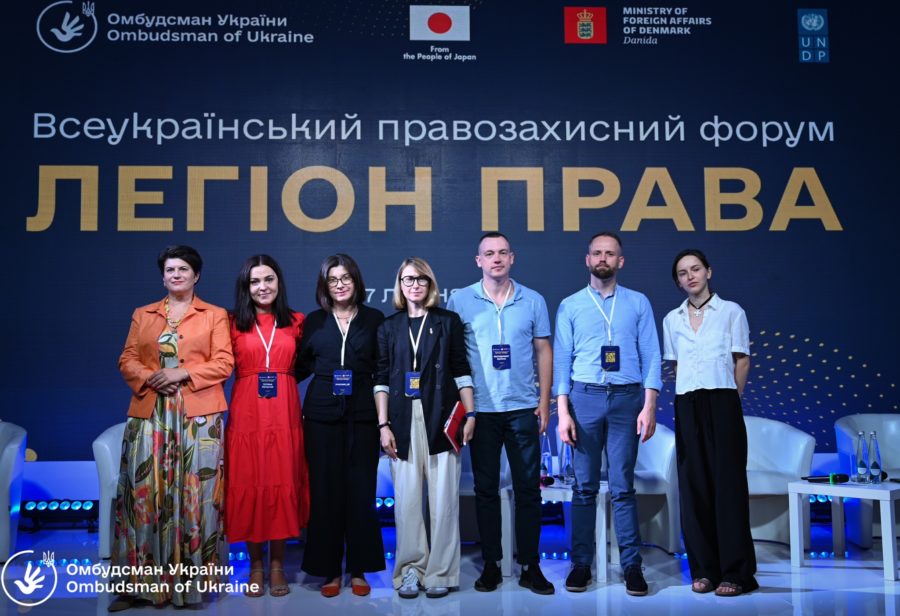
Watch the video from the forum here.
The event was organized with the support of the governments of Japan and Denmark, as well as the UN Development Programme in Ukraine.
Photo credit: Office of the Ombudsman, Human Rights Centre ZMINA
If you have found a spelling error, please, notify us by selecting that text and pressing Ctrl+Enter.















